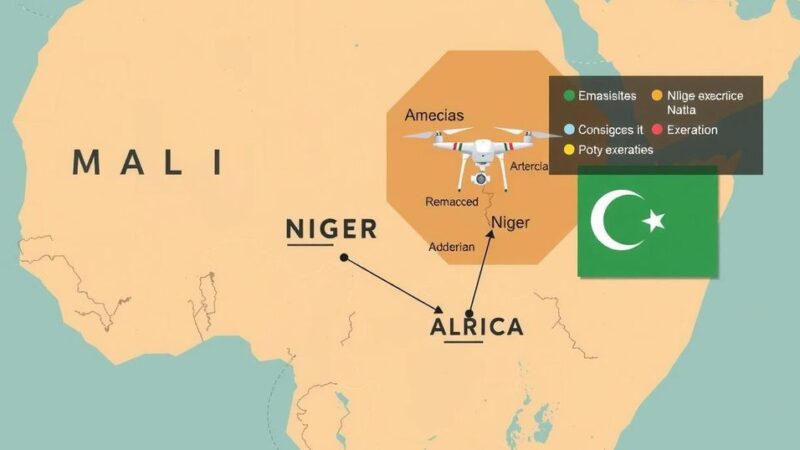The World Bank’s report highlights the critical need for Equatorial Guinea to diversify its economy away from oil reliance in order to stimulate growth and counteract recession. Urgent reforms in human capital investment, governance, and business conditions are essential for sustainable development. Furthermore, addressing fiscal instability and promoting private sector engagement are key recommendations.
A recent report by the World Bank emphasizes the importance of economic diversification in Equatorial Guinea to foster new growth opportunities. The report indicates that declining oil revenues, along with inadequate diversification efforts, have led to a sustained economic downturn and compromised social progress. This decline has reverted the country’s economic advancements, which had previously positioned Equatorial Guinea among the upper-middle-income nations in Africa. The economy has faced six years of recession since 2015, and as of 2023, it has once again entered a recession, following just two years of growth. Moreover, national per capita income has decreased significantly, with current figures being less than half of those recorded in 2008.
To ensure sustainable and inclusive economic growth, the report, entitled “Equatorial Guinea Country Economic Memorandum – Building the Foundations for Renewed, More Diversified and Inclusive Growth,” advocates for investment in human capital, enhancement of the business environment, and strengthening of institutions. Aissatou Diallo, the World Bank Resident Representative for Equatorial Guinea, stated, “Equatorial Guinea has the potential to transform its economy and improve the lives of its citizens. However, this requires bold policy actions to build the foundations for renewed, diversified, and more inclusive growth.”
With the hydrocarbon sector contributing 39% to the country’s GDP and 76% to total exports, its over-dependence presents a challenge, as it generates minimal employment opportunities. If substantial reforms are not enacted, and given the anticipated decline in hydrocarbon reserves, there is a forecasted downward trend in per capita income over the coming decades. The report outlines a strategic roadmap aimed at halting economic decline and facilitating a trajectory of sustainable and inclusive growth based on enhanced human capital development, the promotion of private sector activities, and governance improvement.
Critical measures specified in the report include reducing fiscal instability, improving public financial management, and enhancing governance. These actions involve enforcing fiscal discipline, creating a stabilization fund to mitigate oil price fluctuations, and optimizing tax collection methods. Investing in human capital is also paramount, given Equatorial Guinea’s low ranking on the Human Development Index. Priority areas include bolstering primary education, enhancing public health systems, and implementing social protection initiatives.
To attract private investment and promote economic diversification, the report advises improving the business environment, addressing barriers to entry, and overcoming challenges regarding legal uncertainty and access to finance. Furthermore, it advocates for accelerated digitalization and integration into the global economy, with a focus on promoting eco-tourism as a viable diversification strategy. As noted by lead author Djeneba Doumbia, “The recent decrease in Equatorial Guinea’s hydrocarbon production and the volatility of oil prices are a strong reminder of the need for the country to reduce its exposure to global commodity markets.” The report underscores that sustainable and inclusive growth hinges on persistent policy reforms, development of non-oil sectors, and enhancement of legal and economic institutions.
The World Bank’s report emphasizes the urgency of economic diversification in Equatorial Guinea to mitigate the adverse effects of declining oil revenues and prolonged recession. The outlined strategies focus on enhancing human capital, improving governance, and fostering a conducive business environment. By adopting substantial policy reforms, Equatorial Guinea could lay the groundwork for more sustainable and inclusive growth, ultimately enhancing the quality of life for its citizens.
Original Source: www.zawya.com






